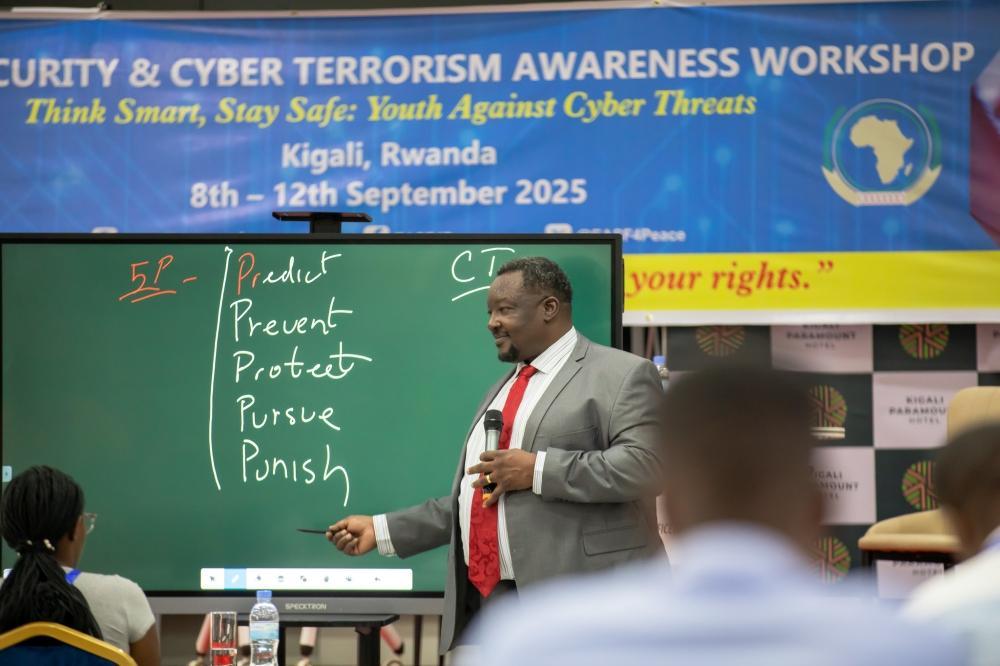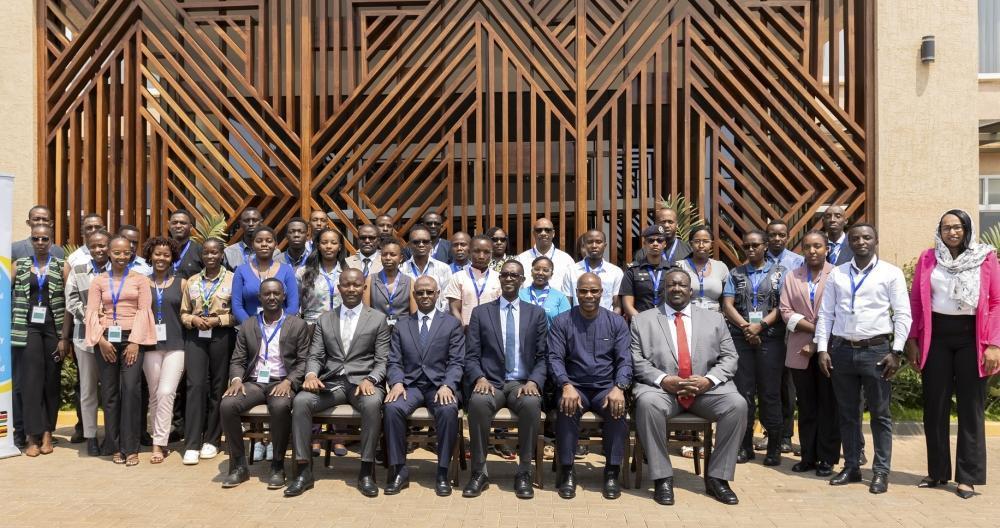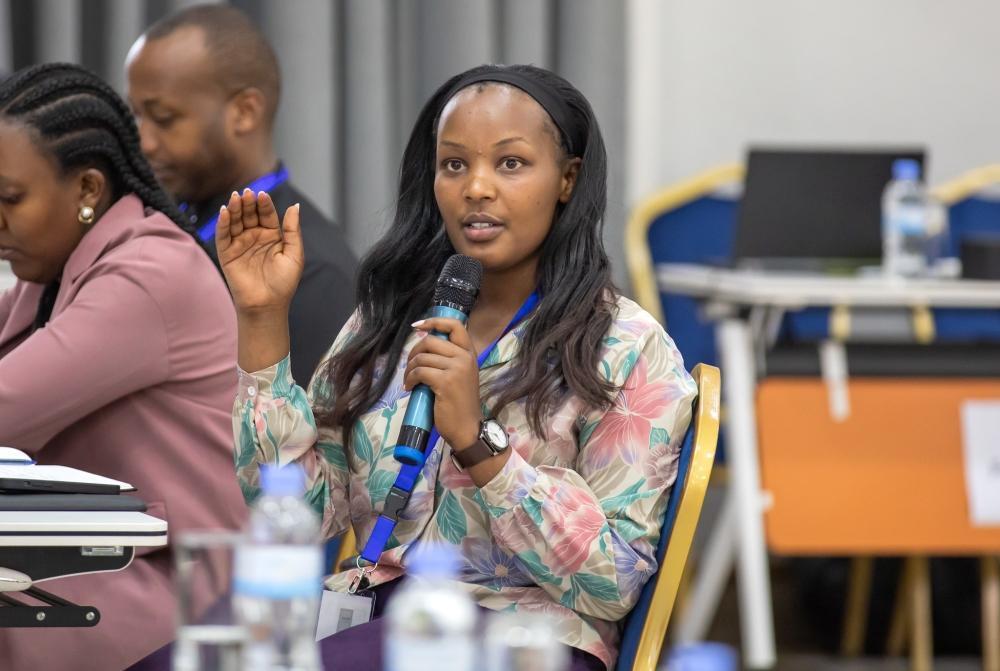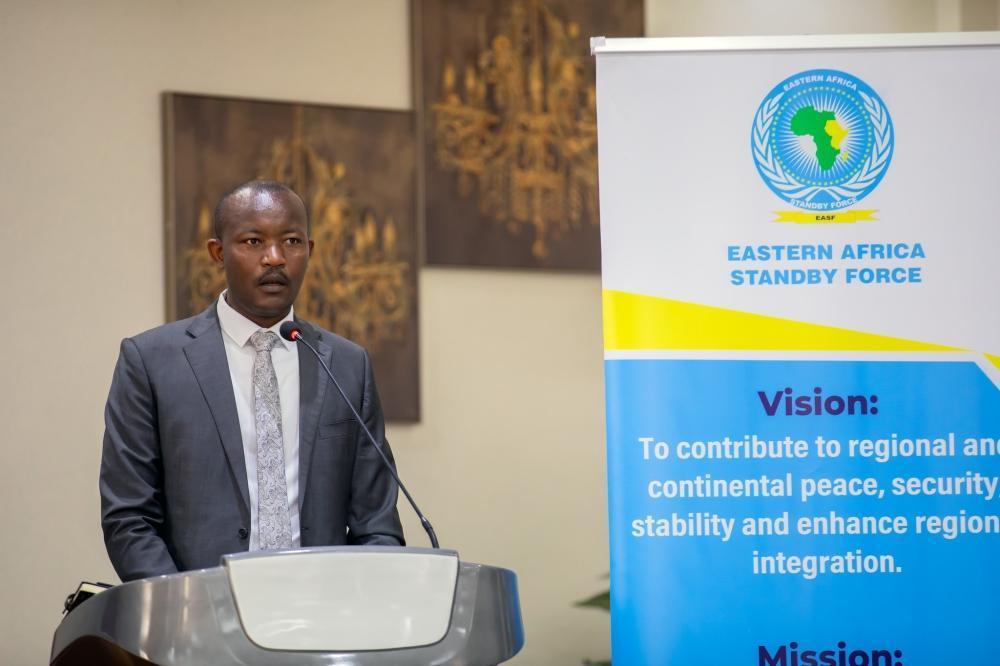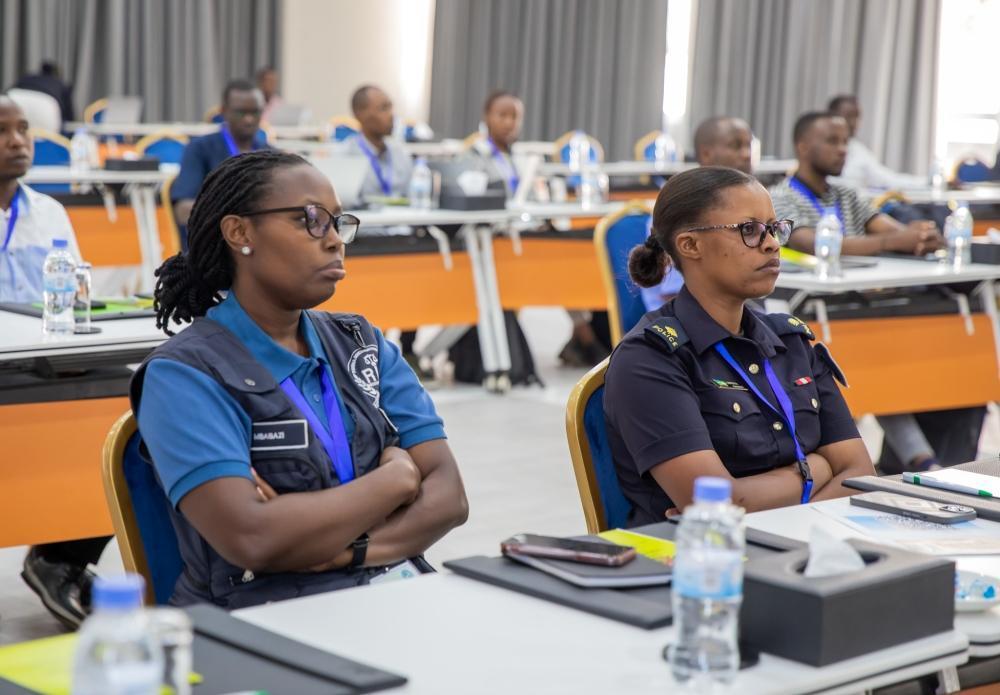Africa-Press – Rwanda. Misuse of the internet is increasingly becoming a gateway for extremists and scammers to target vulnerable groups particularly young people, experts have warned.
They caution that evolving tactics are designed to draw youth into online networks, sometimes turning them into perpetrators knowingly or unknowingly.
These concerns were raised during a five-day workshop on cybersecurity and cyber-terrorism taking place in Kigali from September 8 to 12. The event, organised by the Ministry of Foreign Affairs and International Cooperation in partnership with the Eastern Africa Standby Force (EASF), has brought together policymakers, law enforcement officials, and youth representatives to examine strategies for prevention, detection, response, and recovery in the face of rising cyber risks.
during a five-day workshop on cybersecurity and cyber-terrorism taking place in Kigali from September 8 to 12.
“Youth are spending too much time on the Internet. Many are unemployed and still trying to discover themselves,” said Vivien Niyomugenga, a consultant in cybersecurity, data protection, and project management.
He noted that extremists and scammers spread propaganda and fraudulent schemes on popular platforms such as TikTok, Instagram, X, and Snapchat. The approach, he explained, typically starts by identifying vulnerable groups and luring them into private conversations on encrypted channels like WhatsApp and Telegram, where radicalisation or scams are executed.
HAPPENING: The Ministry of Foreign Affairs and International Cooperation and Eastern Africa Standby Force (EASF) kicks off a five-day awareness workshop on cybersecurity and cyber-terrorism at Paramount Hotel, aimed at raising participants’ understanding of rising online threats… pic.twitter.com/K46EYunyK5
— The New Times (Rwanda) (@NewTimesRwanda) September 8, 2025
Niyomugenga warned that emerging technologies such as artificial intelligence are intensifying manipulation and disinformation, producing content that looks authentic but is fabricated. He stressed the importance of fact-checking and mentorship to help youth resist online traps.
David Kanamugire, CEO of Rwanda’s National Cyber Security Authority (NCSA), highlighted the critical role of young people in shaping Africa’s digital future.
“The world we live in today increasingly relies on technology. The ability to make the best use of it whether for creating opportunities or gaining employment depends on how well it is harnessed. I urge youth to remain vigilant, avoid being lured into crimes disguised as opportunities, and instead focus on using technology productively,” he said.
Youth perspectives
For participants, the workshop is both timely and practical.
Emmanuel Uwayo Rwema from the Youth Council said it will help him strengthen his own cybersecurity practices and share knowledge with peers.
“I’ve encountered all sorts of online threats. At some point, I was almost trapped, but I remained vigilant. We should not authorise or accept all cookies suggested online. I’m looking forward to learning more,” he said.
Joan Kayitesi Kyasimire, a recent IT graduate from the University of Rwanda, emphasised that promises of quick success are often used to exploit young people.
“We need to be cautious and seek advice from trusted sources. Human trafficking is still a threat, and everyone should verify whether opportunities are legally recognised. Many rush and end up trapped. I encourage everyone to stay sober-minded and fact-check before approving anything,” she said.
For More News And Analysis About Rwanda Follow Africa-Press

